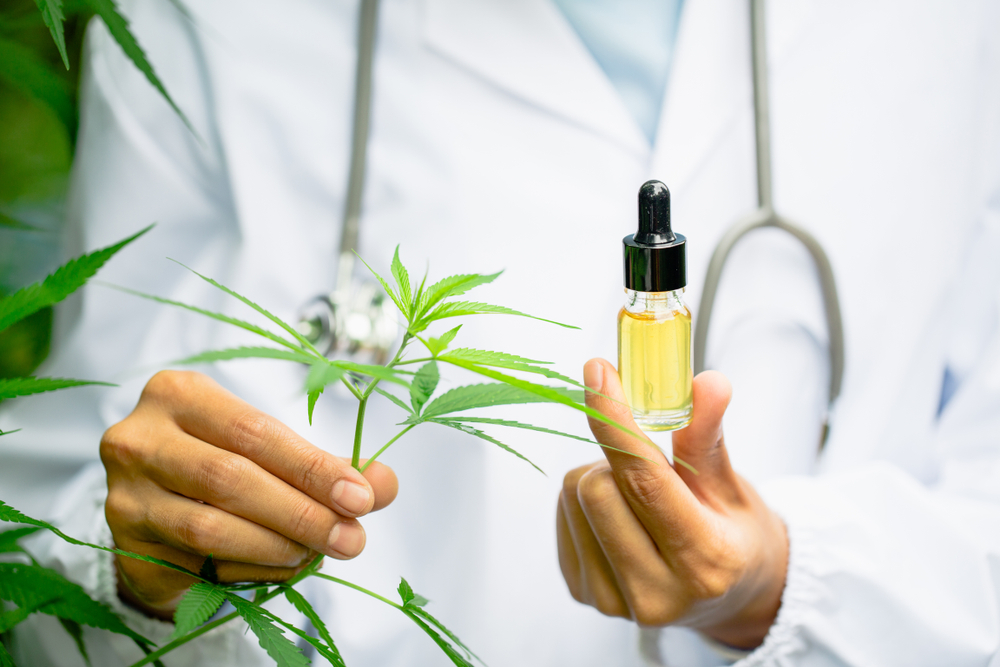From legalization in some countries to medical prescriptions by doctors, CBD is quickly coming to the forefront of modern medicine as a sort of cure-all for a multitude of illnesses, conditions and disorders.
CBD is gaining traction in the world of wellness as users around the world praise its health benefits – but how much do we really know about it?
Because of its surge in popularity, science has wasted no time doing the research to find out just how effective and safe this natural product really is.
Keep reading to find out exactly what research has to say about CBD, its benefits and the associated risks:
What is CBD?
CBD, also known as “cannabidiol”, is a chemical compound extracted from the Cannabid sativa plant. This is the same plant from which marijuana and hemp are produced.
CBD is a naturally occurring substance that differs from THC, which is the major active ingredient in marijuana.
This means that CBD is not psychoactive and will not cause feelings of euphoria or sedation.
CBD oil is made by extracting the cannabidiol from the cannabis plant through either solvent extraction, olive oil extraction or CO2 extraction.
How CBD oil is extracted can produce different end products with different health-related impacts.
The extracted oil is then diluted with a carrier oil, such as coconut oil or hemp seed oil.
From there, CBD is usually taken under the tongue (sublingually), where it is absorbed by the mucus membrane under the tongue into the blood steam.
Otherwise, the oil can be inhaled in vapor form or ingested via edibles or capsules. Some users add the oil smoothies, yogurt or other foods and drinks.
When taken sublingually, CBD oil takes about 15-30 minutes to take effect and can last between 4-6 hours.
The Health Benefits of CBD

According to Bradley E. Algar, a leading scientist in the field of endocannabinoids, endocannabinoids and their receptors are found throughout the body and create a bridge between the body and mind.
The endocannabinoid system plays a role in regulating functions such as sleep, mood, appetite and memory. This system exists within your body even if you don’t use cannabis.
Since CBD is similar to the chemicals created in our bodies, the use of oils integrates better than many synthetic drugs.
For this reason, CBD oil can safely relieve pain, reduce anxiety and depression and provide antioxidants to the body.
Some studies have shown that CBD oil can also be effective in alleviating the symptoms of cancer as well as neurological and neurodegenerative disorders such as Alzheimer’s.
The Side Effects of CBD
Even though CBD oil provides many benefits, it also carries some risks.
According to the World Health Organization (WHO), CBD is generally well-tolerated with most adverse effects resulting from interactions with other drugs, including prescription medications.
Otherwise, those who use CBD oil may experience dry mouth, diarrhea, reduced appetite, drowsiness and fatigue.
However, additional research has indicated that CBD oil may pose risks to those with the following conditions:
- Liver complications
- Low blood pressure
- Pregnancy
Before beginning use of CBD oils, especially if you are looking to replace a current treatment, it is important that you first speak with your health care professional.
Choosing the Right CBD Product
Like anything available to purchase in the world, not all CBD oil products are created equally. And, most importantly, there are no FDA regulations to oversee these products.
This means that there are no quality or safety standards for CBD products, making you, the consumer, responsible for choosing safe and high-quality products.
This should, by no means, drive you away from using CBD oils. It simply means that you have to be careful in choosing products based on the following guidelines:
- Raw Products. Do your research to find out where the hemp used to produce the CBD oil was grown. Materials grown outside of North America could absorb contaminants from the soil where it was grown.
- Added Ingredients. CBD oils are typically mixed with a carrier oil such as MCT (coconut) oil or hemp seed oil. Be wary of unnecessary ingredients such as flavorings that detract from the health benefits of the CBD oil.
- Lab Testing. Known as having a Certificate of Analysis, most CBD oils go through a verification process from a 3rd party source to show the potency and concentration of cannabinoids in the product.
The process of verifying the quality of a CBD oil can be overwhelmed.
Thankfully, some sites go as far as to perform independent reviews on popular CBD products – making the choice easier for you.
Final Thought
It seems that the world of science generally favors the use of CBD to manage the symptoms of debilitating and challenging conditions.
However, not without proper warnings. Just like anything you put in your body, there are risks that need to be taken into consideration.
When using CBD products, always proceed with caution. Do your research and have a conversation with your medical practitioner.




